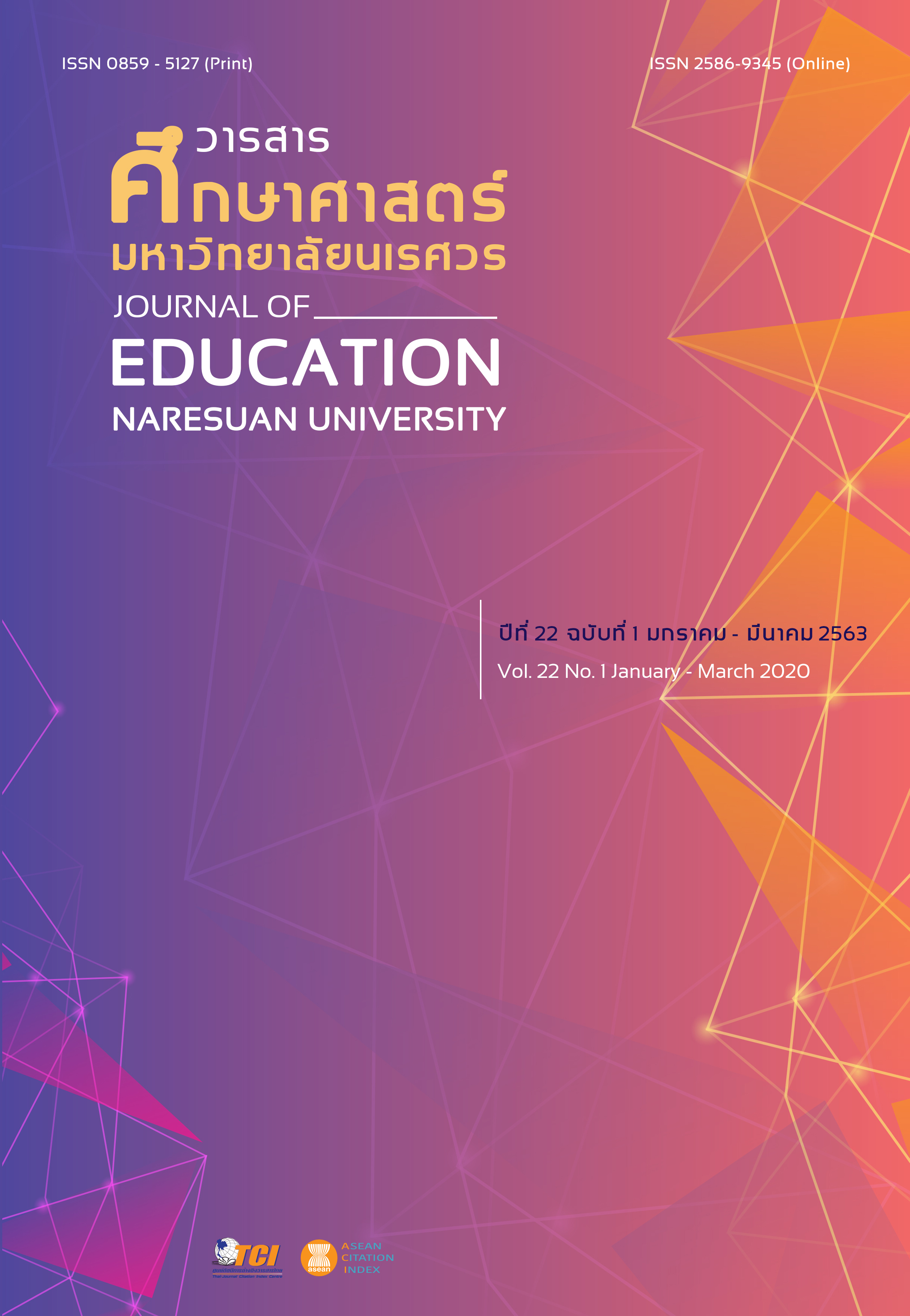ON NATURE OF SCIENTIFIC HYPOTHESES AND ITS IMPLICATIONS FOR SCIENCE TEACHING AND LEARNING
Main Article Content
Abstract
This article presents nature of scientific hypotheses, which play important roles in scientific inquiry processes, but gain little attention in science education communities especially in Thailand. It aims to present that scientific hypotheses have many types including descriptive hypotheses, explanatory hypotheses, and procedural hypotheses. But, many often understand hypotheses as predictions of what would happen. Therefore, the article suggests that students should understand nature of scientific hypotheses as well as practice generating scientific hypotheses by which teachers can facilitate using a number of strategies especially abductive reasoning.
Article Details
The owner of the article does not copy or violate any of its copyright. If any copyright infringement occurs or prosecution, in any case, the Editorial Board is not involved in all the rights to the owner of the article to be performed.
References
Abd-El-Khalick, F., Boujaoude, S., Duschl, P., Lederman, N. G., Mamlok-Naaman, R., Hofstein, A., Nias, M., Treagust, D., & Tuan, H. (2014). Inquiry in science education: International perspectives. Science Education, 88(3), 397-419.
Baxter, L. M., & Kurtz, M. J. (2001). When a hypothesis is not an educated guess. Science and Children, 38(7), 18-20.
Bureau of Academic Affairs and Educational Standards. (2010). Indicators and core learning content in science according to the Basic Education Core Curriculum B.E. 2551. Bangkok: Agricultural Co-operative Federation of Thailand. [in Thai]
Eastwell, P. (2014). Understanding hypotheses, predictions, laws, and theories. Science Education Review, 31(1), 16-21.
Giere, R. N. (1983). Testing theoretical hypotheses. Minneapolis: University of Minnesota. Retrieved from the University of Minnesota Digital Conservancy, https://hdl.handle.net/11299/185344
Guisasola, J., Ceberio, M., & Zubimendi, J. L. (2006). University Students’ Strategies for Constructing Hypothesis When Tackling Paper-and-Pencil Tasks in Physics. Research in Science Education, 36(3), 163-186.
Gyllenpalm, J., & Wickman, P. O. (2011). The uses of the term hypothesis and the inquiry emphasis conflation in science teacher education. International Journal of Science Education, 33(14), 1993-2015.
Hempel, C. G. (1965). Aspects of scientific explanation and other essays in the philosophy of science. New York: The Free Press.
Johnston, J. S. (2009). What does the skill of observation look like in young children? International Journal of Science Education, 31(18), 2511-2525.
Kim, H. J., & Pedersen, S. (2011). Advancing young adolescents’ hypothesis-development performance in a computer-supported and problem-based learning environment. Computer and Education, 57(2), 1780-1789.
Kim, M., Jung, Y. J., & Yoon, H. (2012). Stories of teaching hypothesis-verification process in elementary science classrooms. In K. C. D. Tan and M. Kim (Eds.). Issues and Challenges in Science Education Research: Moving Forward (pp. 175-189). Dordrecht: Springer.
Kwon, Y., Jeong, J., & Park, Y. (2006). Roles of abductive reasoning and prior belief in children’s generation of hypotheses about pendulum motion. Science and Education, 15(6), 643-656.
Ladachart, L., & Ladachart, L. (2016). Pre-service biology teachers’ understandings about nature of scientific inquiry. Journal of Learning Innovations Walailak University, 2(1), 24-44. [in Thai]
Ladachart, L., & Ladachart, L. (2017). From 5Es inquiry cycle towards theory-directed inquiry. Journal of Research Unit on Science, Technology and Environment for Learning, 8(2), 436-448. [in Thai]
Ladachart, L., & Ladachart, L. (2018). From scientific literacy and inquiry to stem education and design. Journal of Education Naresuan University, 20(1), 246-260. [in Thai]
Ladachart, L., & Mahalee, K. (2016). Lower-secondary School Students’ Understandings about Nature of Scientific Inquiry. Journal of Research Unit on Science, Technology and Environment for Learning, 7(2), 284-310. [in Thai]
McComas, W. F. (1998). The principal elements of the nature of science: Dispelling the myths. In W. F. McComas (Ed.). The Nature of Science in Science Education: Rationales and Strategies (pp. 53-70). The Netherlands: Kluwer Academic Publishers.
Oh, P. S. (2010). How can teachers help students formulate scientific hypotheses? some strategies found in abductive inquiry activities of earth science. International Journal of Science Education, 32(4), 541-560.
Okasha, S. (2002). Philosophy of science: A very short introduction (C. Chanthamrong, Trans.). Bangkok: The Princess Maha Chakri Sirindhorn Anthropology Centre.
Park, J. (2006). Modelling analysis of students’ processes of generating scientific explanatory hypotheses. International Journal of Science Education, 28(5), 469-489.
Quinn, M. E., & George, K. D. (1975). Teaching hypothesis formation. Science Education, 59(3), 289-296.
Walton, D. N. (2001). Abductive, presumptive and plausible arguments. Informal Logic, 21(2), 141-169.
Wenham, M. (1993). The nature and role of hypotheses in school science investigations. International Journal of Science Education, 15(3), 231-240.
Yoon, H. G., Joung, Y., J., & Kim, M. (2012). The challenge of science inquiry teaching for pre-service teachers in elementary classrooms: Difficulties on and under the scene. Research in Science Education, 42(3), 589-608.


